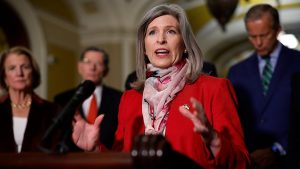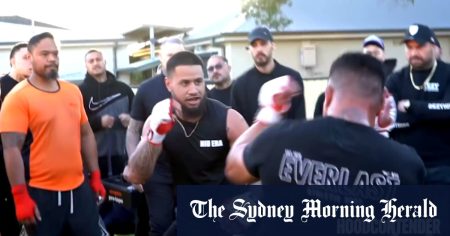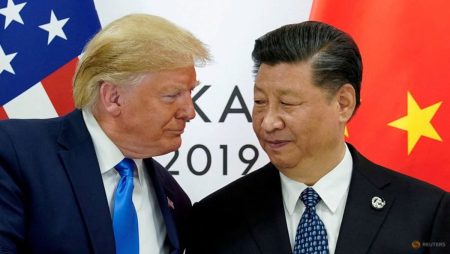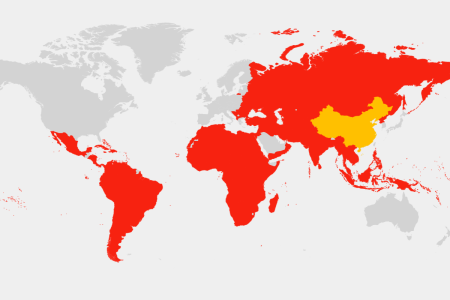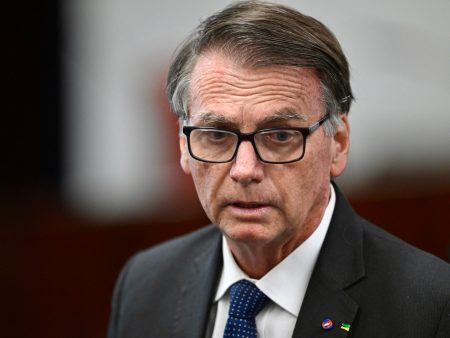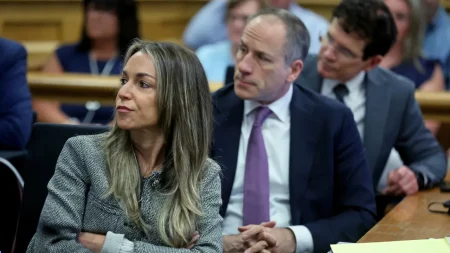The political landscape of South Korea has been dramatically reshaped by the indictment of impeached President Yoon Suk Yeol on rebellion charges, a historic event that has plunged the nation into a constitutional crisis. The indictment, stemming from Yoon’s short-lived imposition of martial law last month, marks the first time a sitting South Korean president has faced such serious criminal charges. While presidential immunity shields Yoon from most prosecutions, the gravity of the rebellion accusation, carrying a potential sentence of life imprisonment or even the death penalty, sets this case apart. The indictment, announced by the opposition Democratic Party and confirmed by various media outlets, including the Washington Post and Reuters, signifies a pivotal moment in South Korean politics and sets the stage for a complex legal battle.
The events leading to Yoon’s indictment began with his controversial martial law decree on December 3, 2024. Yoon, a conservative leader, justified the unprecedented measure as a necessary response to the perceived obstructionism of the liberal-controlled National Assembly, which he accused of hindering his agenda and impeaching key officials. Branding the assembly a “den of criminals,” Yoon deployed troops and police to the legislative body, aiming to quell what he termed “shameless North Korea followers and anti-state forces.” However, the National Assembly, defying the martial law order, convened and unanimously voted it down, forcing Yoon’s cabinet to lift the decree after just six hours.
Despite its brief duration, the martial law declaration resonated deeply within South Korea, evoking memories of the country’s authoritarian past. The move drew sharp criticism and triggered a political firestorm, ultimately leading to Yoon’s impeachment by the opposition-led parliament on December 14th, making him the second conservative president in South Korea’s history to be impeached. Yoon vehemently denied any wrongdoing, asserting that his actions were legitimate and intended to safeguard the nation’s interests. However, his defiance and refusal to cooperate with investigative authorities ultimately led to his arrest on January 15th in a dramatic law enforcement operation at his presidential compound.
The arrest of a sitting president, another unprecedented event in South Korea’s history, further intensified the political turmoil. Yoon, a former prosecutor himself, has been held in solitary confinement since his arrest, according to Reuters. A local court subsequently approved a formal arrest warrant, extending his detention, prompting violent protests from his supporters. The demonstrations, marked by attacks on police officers and damage to court property, underscored the deep divisions within the country. Simultaneously, the Constitutional Court is deliberating on Yoon’s fate, weighing whether to formally remove him from office or reinstate him.
Yoon’s legal defense has been complex and contentious. He has refused to cooperate with the Corruption Investigation Office for High-Ranking Officials (CIO), the body initially leading the investigation, arguing that it lacks the authority to investigate rebellion allegations. The CIO, however, maintains that the rebellion charge is linked to abuse of power and other allegations within its jurisdiction. After a standoff, the CIO transferred the case to the Seoul prosecutors’ office, requesting an indictment. Yoon’s defense team has called for his immediate release and an investigation into the CIO, claiming procedural irregularities.
The indictment on rebellion charges marks a critical juncture in the ongoing political drama. It signifies the culmination of a series of unprecedented events, from the imposition of martial law to the impeachment and arrest of a sitting president. The situation remains highly fluid, with the Constitutional Court’s decision on Yoon’s presidency hanging in the balance and the legal proceedings against him just beginning. The fallout from this political earthquake will undoubtedly shape South Korea’s future, impacting not only its domestic affairs but also its international relations, particularly with its key ally, the United States. The involvement of Yoon’s defense minister, police chief, and other military commanders, who have also been arrested in connection with the martial law decree, further complicates the situation and suggests a wide-reaching investigation into the events of last month.
